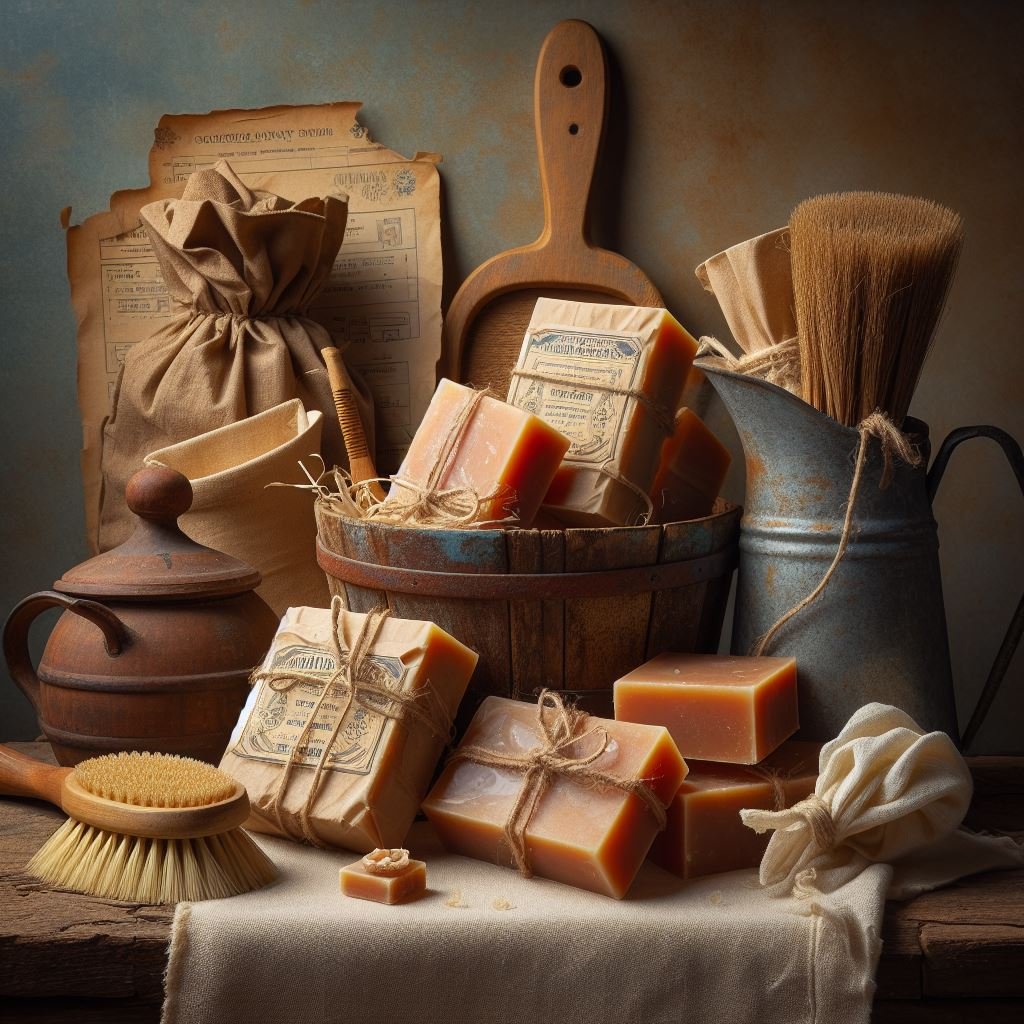SOAP IN HISTORY
Let’s see what a journey soap has made in history;
We cannot give an exact date for the discovery of soap. Many sources estimate that soap has been used for more than 4,000 years. The first written sources mentioning soap date back to 2500 BC. A tablet found in Mesopotamia (current Iraq) mentions the use of soap to wash textiles. Again BC. Another tablet dated 2200 describes the use of soap for medicinal purposes.
Next centuries
In any case, it was the Elder Pliny, a Roman naturalist and encyclopedist in the 1st century AD, who gave detailed information about the use of soap. In his book Natural History, he explains that the Gauls invented soap (sapo) not only to wash the hair, but also to lighten the hair. Soap made with beech ash and goat tallow was the result of a traditional process that was already well known at the time. And this would later be called “saponification”.
Especially in the 2nd century AD, soap was used as a cosmetic for body cleansing, similar to what we know today. In the Near East, especially in Syria, these soaps were made from animal fat, laurel fruit and leaves from a mixture of soda and salt-rich plant ash. In Aleppo, in the north of Syria, soap craftsmanship made of laurel oil and olive oil had begun to emerge. The famous Aleppo soap, regarded as the ancestor of soaps, had begun to emerge. At that time, there was no insult in Marseille yet.
Terminology:
When we look at the sources, the origin of the word “soap” is a very controversial issue. Some attribute the origin of the word to “Savona” in Italy. Others claim that it comes from the Persian word “soap” or even from the Latin “sapo”.
According to a Roman legend, the fat of the animals sacrificed on the “Sapo” mountain was spontaneously soaped with ashes and rain water left over from the fire. Rain waters carried these soapy substances to the Tiber River. Roman women later realized that this substance in the river cleans the laundry …
In short, we must say that soap has an important place in history; hygiene and cosmetics occupy an important area in our lives …
From Ancient Alchemy to Modern Marvel: A Journey Through the History of Soap
Early Discoveries: From Babylonians to Romans
The history of soap stretches back millennia, with its origins shrouded in the mists of time. The earliest evidence comes from ancient Mesopotamia, where the Babylonians, around 2800 BC, harnessed the power of fats and ashes to create a rudimentary cleaning substance. This early “soap” served multiple purposes, from washing textiles to treating skin ailments. Legend has it that the Romans adopted the name “sapo” from Mount Sapo, where rainwater mixed with animal fat and wood ash, creating a natural cleaning agent.
Evolution and Refinement: From Medieval Times to Modern Era
Throughout the centuries, soap-making techniques evolved across various civilizations. The Egyptians used a mixture of animal fats and plant oils, while the Europeans relied on animal fat and wood ash until the introduction of olive oil in the 9th century. This shift significantly improved the quality and scent of soap, leading to increased production and popularity. The Industrial Revolution further revolutionized soap-making with the development of mass production methods and the introduction of synthetic ingredients.
Beyond Cleaning: The Cultural Significance of Soap
Beyond its practical uses, soap has played a crucial role in shaping cultural norms and hygiene practices. In ancient Rome, public baths were popular, and soap was essential for maintaining cleanliness. Similarly, in Japan, the development of communal bathing rituals like Onsen placed emphasis on personal hygiene and the use of soap. Today, soap continues to be a symbol of cleanliness, health, and personal care, reflecting our evolving understanding of hygiene and well-being.
This brief glimpse into the history of soap reveals a fascinating journey of discovery, innovation, and cultural significance. From its humble beginnings to its modern-day applications, soap remains an essential part of our daily lives, reminding us of the ongoing pursuit of cleanliness and well-being throughout human history.



What are the benefits of the soap?